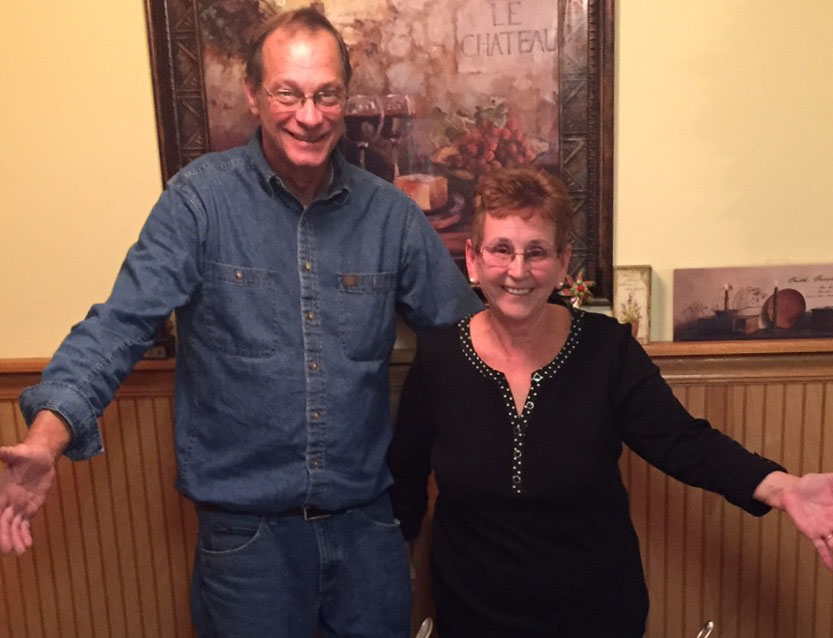Mesothelioma Survivor Praises Keytruda for Fresh Optimism

Mesothelioma survivor Walter Merth brought 10 fishing poles and enough tackle to catch every bass in Black Lake, taking his unbridled optimism to the family’s late-summer vacation spot in upstate New York.
He is thriving again thanks to a successful immunotherapy drug.
Keytruda, also known by its generic name pembrolizumab and marketed by Merck & Co., stops new tumor growth and virtually eliminates existing malignancies.
“To say Keytruda is some magic bullet for mesothelioma is not true,” his son and fishing partner, Dave Merth, told Asbestos.com. “But in his case, it was the answer. He responded really well to it. Better than we ever imagined.”
Doctors diagnosed Walter Merth with pleural mesothelioma in April 2015. Sixteen months later, Merth was back on the boat, teaching three of his grandchildren about the joys of fishing and living life to the fullest.
“I’m getting stronger every day. It’s like getting my life back, like a restart, a reboot,” Walter Merth said. “This therapy has given me a new window. It may not save my life, but it’s certainly buying me some valuable time.”
Merth, 68, is a former U.S. Navy boilerman who spent much of his post-military years as a mechanic in the Philadelphia area, where he and Clara, his wife of 50 years, raised their two children.
He was stunned at the initial diagnosis of mesothelioma — a cancer caused by exposure to asbestos particles. But he was lucky enough to live close to Penn Medicine’s Abramson Cancer Center and Dr. Evan Alley, whose early research with this new immunotherapy drug made him a believer.
Walter Merth enjoys spending time with his grandchildren.
Survivor’s Turnaround Is Amazing
A year ago, the feeling that the family patriarch wouldn’t be around long cast a shadow over the Merth’s annual family vacation.
His shortness of breath crippled him. He sat most of the time, unable to walk for more than a few steps. Doctors initially told him surgery was not an option, leaving him with few choices as his health declined.
“God doesn’t give you anything you can’t handle. I was at peace,” he said. “Today, I’m on God’s time.”
In November, the panel of specialists at Penn Medicine met again with the Merth family and reversed course, deciding that surgery might work after all.
On Dec. 15, thoracic surgeon and mesothelioma specialist Dr. Sunil Singhal performed a 10-hour pleurectomy/decortication, utilizing a novel photosensitizer that illuminated the tumor cells and allowed him to meticulously find and remove more than normally possible.
Although everyone expected a weeks-long hospitalization, Merth left after six days, determined to reach his own recovery goals. The staff told him no one his age had ever left the hospital so quickly after such an aggressive surgery.
“I was up and walking, doing laps around the intensive care unit, the day after surgery,” he said. “They just had such a great team of doctors there, that it made a world of difference. It gave me a confidence that I would get better. I told the surgeon, you have the tough job, taking all that out. All I have to do is wake up and get better.”
Keytruda to the Rescue
Despite the post-surgery enthusiasm, traces of the mesothelioma tumor returned just two months after the procedure, prompting the start of Keytruda infusions.
The U.S. Food and Drug Administration (FDA) first approved Keytruda in 2014 to treat melanoma, an aggressive skin cancer that often migrates to various organs. Since then, it received approval to treat certain lung cancers and colorectal cancer.
Keytruda garnered considerable attention in December when former President Jimmy Carter credited the drug for fighting his melanoma, which earlier had spread to his brain.
Although the drug is not FDA-approved for patients with mesothelioma, Merth has been getting it under Merck’s Patients Access Program.
In March, he started taking it intravenously every 21 days. His CT scan in May showed a 53 percent reduction in tumor size. His second CT scan in August showed it had almost completely disappeared.
“They told me if they didn’t have a previous scan to compare it to, you wouldn’t even know I had mesothelioma,” Merth said. “I said wow! We’re on a roll here. It was celebration time. They called it a ‘near complete response to the drug.’”
He anticipates his next CT scan in November.
A Rollercoaster Ride
“This has been a rollercoaster ride,” he said. “When I was first told I had this, it tore my heart out. The two words that kept ringing in my head were ‘incurable’ and ‘terminal.’ It changed my life, and it changed the lives of my entire family.”
Walter Merth and his family celebrate his survival in front of the famous Rocky statue at the Philadelphia Museum of Art.
Merth also knows Keytruda doesn’t work for everyone, and it may not work indefinitely. It is designed to target PD-L1, a protein that stops the body’s immune system from attacking the cancer.
Patients with the higher levels of the PD-L1 protein — which Merth has now — respond best to Keytruda.
“God moves mountains sometimes,” he said. “In an odd way, this disease was a gift, and it brought my family closer together, tighter than it has ever been. There’s a lot of love here now.”